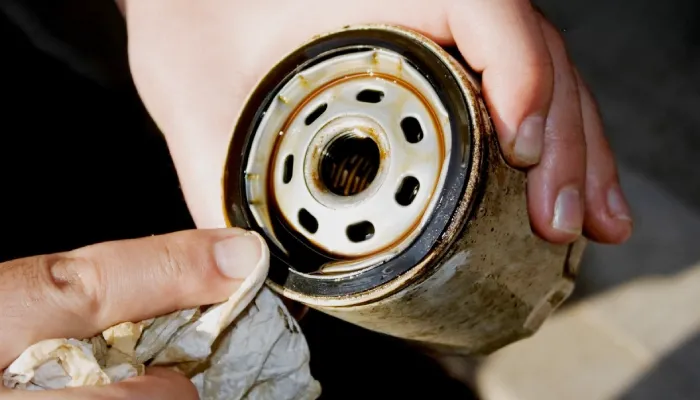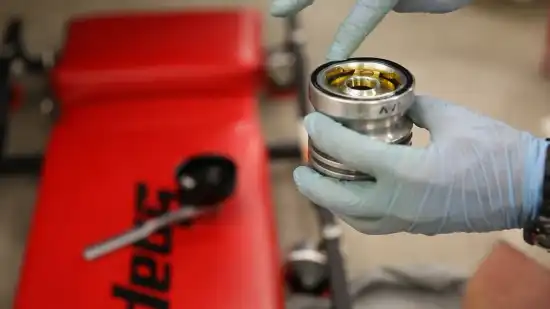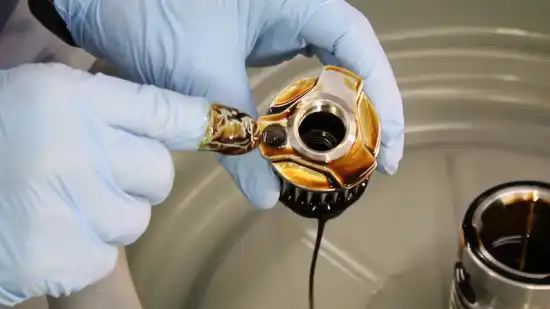Physical Address
304 North Cardinal St.
Dorchester Center, MA 02124
Physical Address
304 North Cardinal St.
Dorchester Center, MA 02124

An oil filter is an essential component of your vehicle’s engine that works to keep your engine oil clean and free of contaminants that can potentially damage it. As a responsible vehicle owner, you’re probably wondering if you can reuse an oil filter.
On the basis of my research, reusing a disposable oil filter is not advisable. When you’re in the routine of changing your vehicle’s oil, typically at 3,000 to 6,000-mile intervals, it’s best to replace the oil filter with a new one. But you can reuse an oil filter if it’s a high-quality, reusable filter with stainless steel mesh and magnets to trap metal particles.
I will explain in detail why it is best to avoid reusing disposable oil filters so you can decide about the best practices for your vehicle’s maintenance.

There are several compelling reasons to avoid reusing disposable oil filters, each of which underscores the importance of maintaining your vehicle’s engine health.
Regularly reusing disposable oil filters is strongly discouraged as it can significantly jeopardize your vehicle’s engine health and performance. These filters are designed for single use only, and attempting to reuse them can have detrimental effects on your engine.
When you reuse a disposable oil filter, the trapped contaminants from the old oil can dissolve and recirculate into the new oil introduced during an oil change. This can lead to insufficient lubrication, which is crucial for proper engine function.
Insufficient lubrication can result in engine damage, reduced fuel economy, overheating, and costly repairs. To ensure optimal engine health and performance, it’s important to replace the oil filter with a fresh one during each oil change.
This will help maintain proper lubrication and prevent potential damage to your engine.
Additionally, this same principle applies to gearbox oil filters. When you change your gearbox oil, it’s essential to replace the gearbox oil filter as well. Reusing the filter in your gearbox can lead to similar issues, compromising the performance and longevity of your transmission.
To avoid significant engine damage and compromised performance, it’s crucial to never reuse a disposable oil filter. One of the main reasons for this is the buildup of contaminants.
When oil flows through the engine, it picks up dirt, metal particles, and sludge. These contaminants can accumulate in the filter over time, causing it to become clogged.
As a result, the flow of oil to critical engine components is hindered, leading to less efficient lubrication and increased wear and tear. Furthermore, the buildup of contaminants can also lead to the formation of deposits in the engine, which can further impede performance.
Reusing a disposable oil filter would only reintroduce these contaminants into the engine, putting it at risk of damage and reduced performance.
To ensure optimal engine health and performance, you must never reuse a disposable oil filter due to the potential for filter media damage.
Disposable oil filters are designed to be used once and then discarded for a reason. Attempting to reuse them can result in significant damage to the filter media, which is responsible for trapping contaminants and preventing them from circulating in your engine.
Cleaning the filter can cause the media to become less effective at capturing particles, allowing them to pass through and potentially cause engine damage. Furthermore, the cleaning process itself can introduce additional contaminants into the filter, exacerbating the issue.
Every time you change your oil, make sure you replace your oil filter with a new one to maintain the integrity of the filter media.
Reusing a disposable oil filter can potentially damage the O-ring, compromising its ability to create a proper seal and leading to oil leaks and engine failure. The O-ring is a critical component of the oil filter, responsible for sealing the filter housing and preventing oil from bypassing the filter media.
Over time, the O-ring can become worn, brittle, or deformed due to the heat, pressure, and chemical exposure it experiences during normal engine operation. Reusing an oil filter increases the risk of further damaging the O-ring, as the filter may have accumulated debris and contaminants that can scratch or tear the seal.
As a result, the compromised O-ring may not provide an effective seal, allowing oil to leak out of the filter housing and potentially causing serious engine damage if the filter becomes dislodged.

It is acceptable to reuse an oil filter under certain conditions. If the oil filter has been changed on schedule, is not severely clogged or damaged, and the oil has been regularly maintained, reusing the filter briefly can be considered.
This practice can be compared to topping up oil in a worn engine that burns oil without changing the filter each time.
However, many manufacturers recommend replacing the oil filter every second time you change your gearbox oil, and this is a common practice to ensure optimal engine health.
It’s crucial to assess the filter’s condition, consider manufacturer recommendations, and factor in the cost-effectiveness of reusing the filter when deciding whether to do so.
Reusable oil filters can be used for various types of vehicles, making them a versatile option for maintaining your engine’s health. These filters are designed with adapter plates that can be changed to fit different engine types, ensuring compatibility.
The wire cloth filter inserts are typically consistent in size for vehicles of similar sizes, further expanding their suitability for a wide range of vehicles.
However, it’s crucial to consult the manufacturer’s guidelines to guarantee the correct fit for your specific vehicle. Each vehicle may have unique specifications that need to be considered when selecting a reusable oil filter.
The decision to reuse an oil filter should be made carefully considering the potential risks and benefits. Reusing disposable oil filters is generally discouraged due to the adverse effects it can have on engine health and performance.
While some high-quality, reusable oil filters can be a more sustainable choice, it’s essential to adhere to manufacturer recommendations and assess the filter’s condition before deciding. According to my findings, I believe it’s often the safest and most cost-effective approach to replace the disposable oil filter with a new one during routine oil changes. Your vehicle’s longevity and performance depend on it.